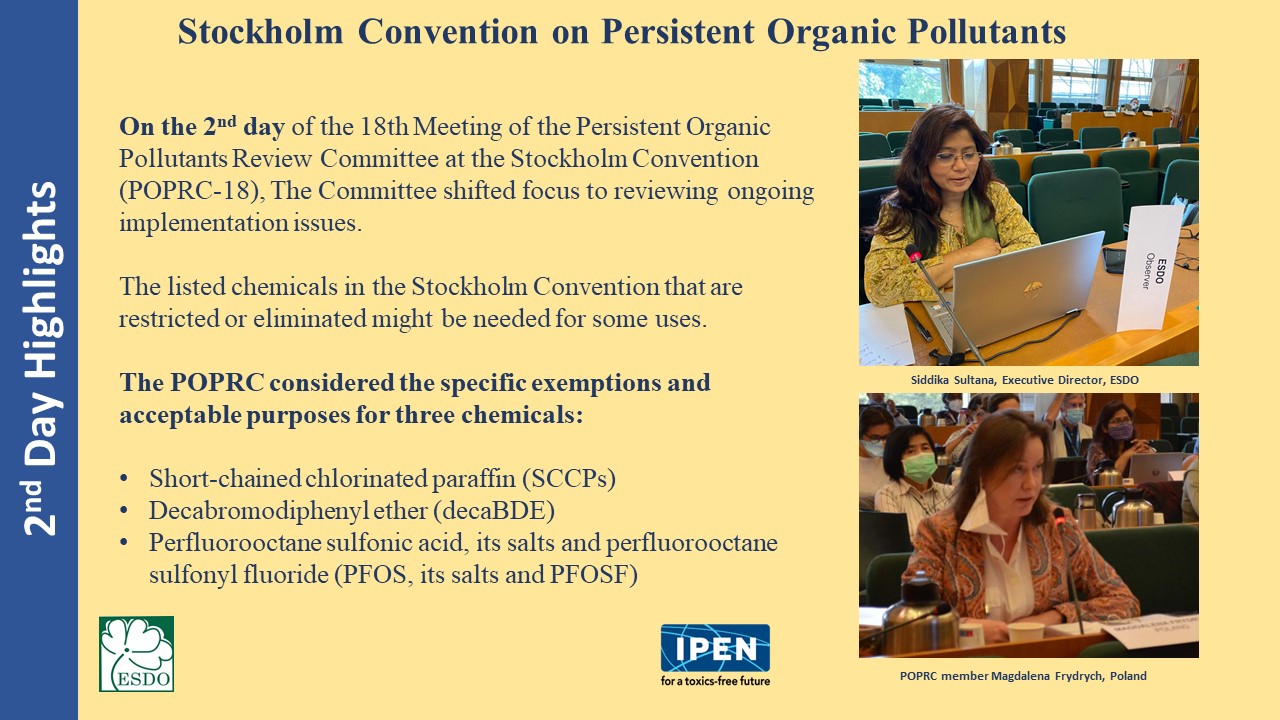Day 2 Highlights – Stockholm Convention on Persistent Organic Pollutants

On the 2nd day of the 18th Meeting of the Persistent Organic Pollutants Review Committee at the Stockholm Convention (POPRC-18), the Committee shifted focus to reviewing ongoing implementation issues.
The listed chemicals in the Stockholm Convention that are restricted or eliminated from production or usage might be needed for some uses. Countries then register for a “specific exemption” to keep using an eliminated chemical, or can continue using a restricted chemical for an “acceptable purpose.”
The POPRC considered the specific exemptions and acceptable purposes for three chemicals:
• Short-chained chlorinated paraffin (SCCPs): only a few countries have indicated they will need such an exemption.
• Decabromodiphenyl ether (decaBDE): Eight countries have registered their ongoing production and/or use, including for legacy spare vehicle parts, textiles, and plastic housing and parts in appliances.
• Perfluorooctane sulfonic acid, its salts, and perfluorooctane sulfonyl fluoride (PFOS, its salts and PFOSF): There are only two specific exemptions, for metal plating and fire-fighting foams, and one acceptable purpose, for leaf-cutting ant baits.
Long-distance environmental transportation was also brought up by the Committee. Chemicals must meet a crucial requirement in order to be classified as POPs: they must be able to move far from their places of production and usage, posing dangers to nearby communities.
Afternoon contact groups worked on the draft risk profiles for long-chain perfluorocarboxylic acids and chlorpyrifos (LC-PFCAs). The draft risk profile for “medium-chain chlorinated paraffins” and the draft risk management evaluation for Dechlorane Plus was discussed by contact groups in the evening.
On the second day, Executive Director of ESDO, Siddika Sultana intervened in a session as a representative of ESDO and IPEN. In her statement, she emphasized on the feasible end of this exemption and accelerated efforts facilitating technology transfer to speed up phase out the use of PFOS from the hard-metal coating in all countries. She also gave emphasis to end the specific exemption of fluorine-based fire-fighting foams considering its negative environmental impacts.


